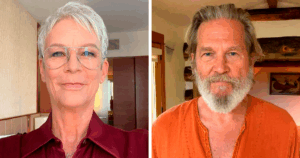Gordon Ramsay’s Shocking Skin Cancer Warning: The Hidden Symptoms You Can’t Ignore Before It’s Too Late
So, here’s the kicker: celebrity chef Gordon Ramsay just flipped the script—not in the kitchen, but on his own skin health—and Cancer Research UK is applauding him for it. Yep, the fiery 58-year-old foodie’s latest Instagram reveal of a basal cell carcinoma surgery underneath his ear isn’t just a tale of recovery; it’s a fiery reminder that sun safety is no joke. Ramsay’s cheeky disclaimer—“It’s not a facelift, I’d need a refund!”—might give you a chuckle, but behind that stitched-up ear is a serious message about the sneaky reality of skin cancer. Basal cell carcinoma may be the most common (and least threatening) skin cancer out there, but it’s a classic “nip it in the bud” situation—and if Gordon’s sharing his story, maybe it’s time we all reach for the sunscreen a little more religiously, huh? After all, if the man who once ruined your dinner can rock a bandaged ear and still serve up advice, maybe sun safety just got a celebrity endorsement worth taking seriously. LEARN MORE.
Cancer Research UK has praised celebrity chef Gordon Ramsay for ‘raising awareness’ after he revealed his skin cancer scare to fans.
The charity commended the 58-year-old for reminding people of ‘how important it is to stay safe in the sun’ after announcing he had recently undergone surgery to get rid of it.
On Saturday (30 August), Ramsay shared a snap of his stitched-up ear with his 19.2million Instagram followers, while jokingly insisting that he hasn’t had a facelift.
He wrote: “Grateful and so appreciative for the incredible team at The Skin Associates and their fast reactive work on removing this Basal Cell Carcinoma thank you!
“Please don’t forget your sunscreen this weekend. I promise you it’s not a face lift! I’d need a refund…”
Cancer Research UK then commented on the post saying: “Glad to hear you’re doing well, Gordon, and thanks for raising awareness of how important it is to stay safe in the sun.
“Seek shade, cover up, and apply sunscreen regularly and generously.”
Ramsay recently had a procedure to remove the basal cell carcinoma (BCC) – a type of non-melanoma skin cancer – which had appeared underneath his ear.
It’s the most common form of skin cancer and it starts in the top layer of the skin, according to the NHS.

Gordon Ramsay revealed he had undergone surgery (Alex Bierens de Haan/Getty Images)
Thankfully, it is usually easily treated – unlike melanoma, which is aggressive and can spread quickly to other organs.
Instead, non-melanoma skin cancer grows slowly and usually causes local skin damage rather than life-threatening illness.
According to the NHS, the main cause of this form of the disease is ultraviolet light, which ‘comes from the sun and is used in sun beds’.
Although it isn’t as sinister as a melanoma, it’s still important to get BCC nipped in the bud as quickly as you can.
Cancer Research UK explains that your GP should arrange for you to see a specialist if you have symptoms that could be caused by non melanoma skin cancer.
“Depending on your symptoms and other factors, this might be an urgent referral,” it explains. “Some GPs have had special training and are able to treat a type of skin cancer called basal cell cancer (BCC).
“So you might not need a referral to see a specialist.”

He shared a snap of his stitched-up ear with fans (Instagram/@gordongram)
Symptoms to look out for
Different skin cancers appear in different forms on the skin, although some of the symptoms of different kinds of the disease are similar.
Common ones include a ‘sore or area of the skin’ that doesn’t heal within 4 weeks, looks unusual, hurts, is itchy, bleeds, crusts or scabs for more than 4 weeks, according to Cancer Research UK.
So, you should book an appointment with your doctor as speedily as you can if you’ve got any of these concerns.
The charity also advise looking out for sores that don’t heal, which may appear to be ‘shiny and pink, pearly white or red’ and have sore, rough and raised edges.
The same goes for any ulcers which have appeared on your skin which don’t heal within four weeks.
Keep tabs on lumps which may be ‘small, slow growing, shiny and pink or red’ too, as well as red patches on your skin which might be itchy.
“This could be due to other non cancerous skin conditions,” Cancer Research UK says. “But get it checked to make sure.”
Lastly, be on alert for any changes to moles or freckles on your body, as this could be a sign of melanoma.
Offering some further advice, the cancer charity said: “Non melanoma skin cancer tends to develop most often on skin exposed to the sun.
“To spot skin cancer early it helps to know how your skin normally looks. That way, you’ll notice any changes more easily.
“To look at areas you can’t see easily, you could try using a hand held mirror and reflect your skin onto another mirror.
“Or you could get your partner or a friend to look. This is very important if you’re regularly outside in the sun for work or leisure.”
Take a picture of any unusual marks on your skin too so you can monitor any changes and show the snaps to your GP.
According to Cancer Research UK, there are ‘around 17,500 new melanoma skin cancer cases in the UK every year’, which is around 48 every day, according to stats from 2017-2019.












Post Comment